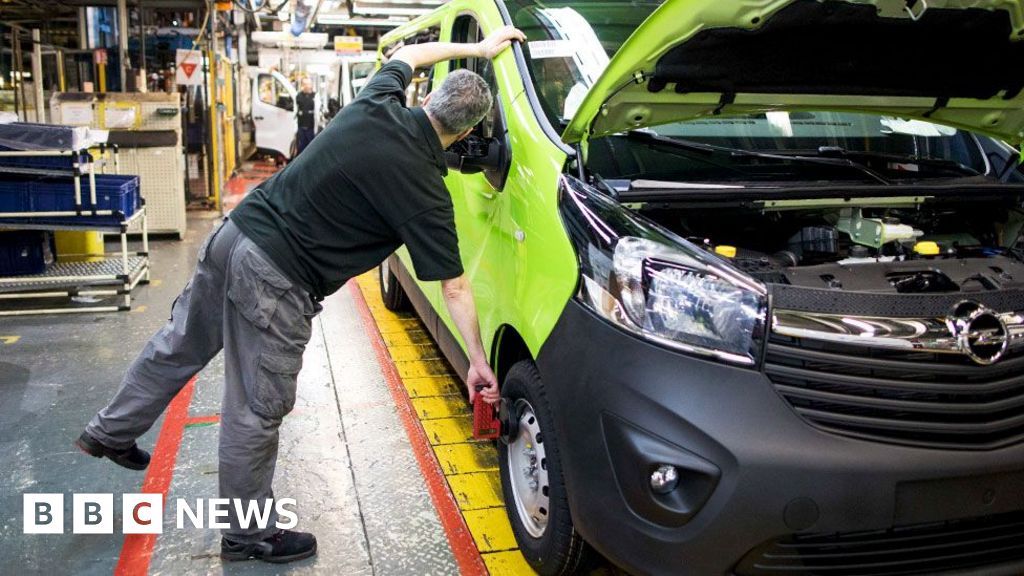Following the Luton plant announcement and intense pressure from industry leaders, Business Secretary Jonathan Reynolds said the government would consult on changes to EV sales rules, which is officially called the zero-emission vehicles mandate, because it was not working as expected.
“I get the seriousness and the urgency of the situation,” he said, adding that the decision to close the Vauxhall van factory was a “difficult day for Luton”.
As part of the shift to electric, manufacturers are required to sell a certain percentage of cars and vans that do not emit any emissions.
Current rules state EVs must make up 22% of a carmaker’s car sales, and 10% of van sales this year.
For every sale that pushes it outside the mandate, firms must pay a £15,000 fine. There are flexibilities in the system, allowing manufacturers who cannot meet the targets to buy “credits” from those that can.
But car brands with factories in the UK have been urging the government to relax the rules, arguing that EV demand is not strong enough and more incentives are required for drivers to go fully electric.
Stellantis’s Vauxhall plant in Luton currently builds petrol and diesel vans and had been due to start making its medium-sized Vivaro electric van from 2025, before the decision to close it.
Electric models from other Stellantis brands, including Citroën, Peugeot and Fiat, were also set to be built there. Vauxhall’s Luton director said at the time it would be a “fitting way” to mark the factory’s 120th anniversary.
Now, the electric model that had been scheduled for manufacturing at Luton will move to Ellesmere Port, which is to get a £50m cash injection.
Credit: Source link











